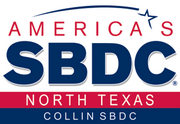Managing in a Virtual World
“When a paradigm shifts, everything goes back to zero.” These are the words of Joel Barker who has done extensivework in teaching us about paradigms. Good thing, because COVID-19 has indeed put us right in the middle of aparadigm shift – and we have gone back to zero. In February 2020, managing in a virtual world was not a common practice. Many jobs, we knew, could not be done in such a manner as to allow employees to work from home. So, managing in a virtual world became a priority.
As expected when a paradigm shifts, we were forced to create new rules – new ways of doing work in order to besuccessful. We have found ways to do what we thought was not possible and in a very short time we have made hugestrides toward managing in a virtual world. People are now realizing that when we do get back to “normal,” normal willbe a much different reality.
As leaders struggle managing in a virtual world, our new paradigm, there is comfort in knowing that most managers already have the skills they need. One of the biggest misconceptions is that an entirely different skillset is needed.
What Must Leaders Do to Managing in a Virtual World?
While most managers have the skills they need, there aredifferences in execution. Let’s consider some of the most commontasks.
- Defining Purpose is indeed a critical function for any Employees must understand what the “main thing” is, and understand how that main thing shapes goals and priorities. The difficulty in a virtual world is one of perception and communication.Because we are in the middle of a paradigm shift, managers may take their “eye off the ball” and in the process inadvertently allow employees to do the same. If leaders are not communicating what should be the main focus, chances are employees will work very hard – on wrong things.
- Communication is always challenging but even more so when managing With remote employees,there is sometimes a mindset that an employee working offsite is in fact, not part of the everyday team. Remoteemployees before this paradigm shift, were largely considered to be isolated, on their own, and not directlyconnected to the work of the team. Leaders must insist on regular meetings, extended discussions even whenuncomfortable, and peer-to-peer collaboration.
- Employee Engagement must be translated into employee involvement and Delegation is moreimportant than ever. Channels for input and feedback must be deliberately designed. Social connections must be considered and creative methods used to allow “water cooler” talk when there is no water-cooler, or break room, or office!
- Problems must be It is difficult to address problems when we work together face-to-face. It is evenmore difficult in a virtual environment. Overlooking poor performance whether it is an individual or team issue,is deadly.
- Work-life integration must find We now see our employees in ways we never have. In meetingschildren appear, pets jump on cameras, and we see inside the lives of others. Learning to be flexible while continuing to fulfill the mission of the organization, is something we must do.
So, How Do We Survive This Shift?
Let’s stop to consider the benefits of the shift that is occurring – and there are many. Take time to consider advantages. Have a discussion with your team and list all the good that is coming from the changes that are happening. Think aboutpossibilities in your future that seemed impossible just a few months ago. How can your business get ahead of theshift? What can you do toward solving problems that were seemingly unsolvable in our old paradigm?
CARES Program blog contributed by:
Lorna Kibbey, owner of Lorna Kibbey Leadership Solutions, designs and delivers management and leadership motivational speeches, seminars, and services to public and private sector organizations. She has achieved recognition in the State of Florida as a Certified Public Manager and was recognized as “Best Boss of the Year” in a nationwide initiative.
Learn more about Lorna’s seminars:Managing in a Virtual World, Right Person, Right Time, and Leading in Times of Change and how to access customized consulting through theCollin SBDC CARES Program.




